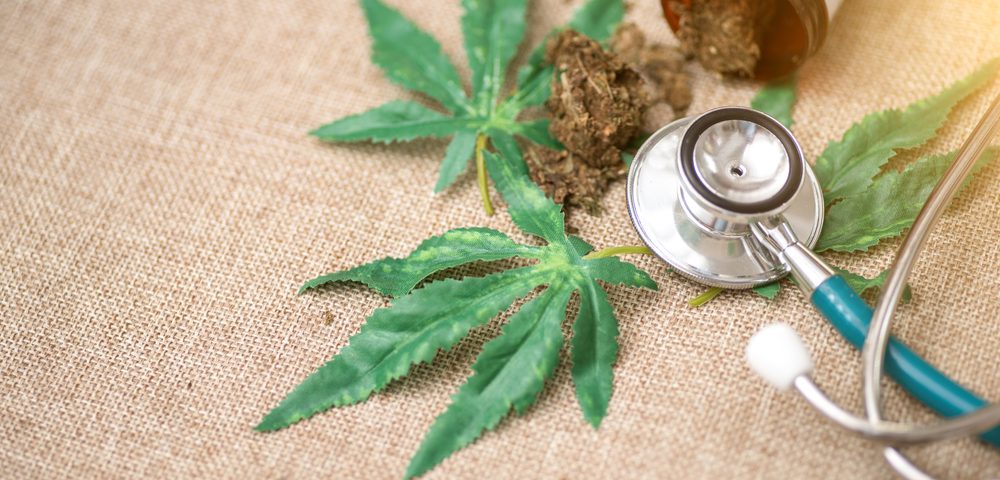Oral treatment with pharmaceutical cannabidiol (CBD), sold under the brand Epidiolex, seems to be more effective to control seizures than artisanal preparations of CBD, in children and young patients with Lennox-Gastaut syndrome (LGS) and other epilepsies, a preliminary study has found.
The difference in seizure control “is dramatic” and of concern because many people still use artisanal CBD, researchers said.
However, patients taking Epidiolex have more side-effects, likely due to the higher levels of CBD found in the medication.
The study, “Keep Off the Grass: Artisanal Versus Pharmaceutical Cannabidiol in Pediatric Refractory Epilepsy Patients” was scheduled to be presented at the American Academy of Neurology (AAN) Annual Meeting, planned for Apr. 25–May 1 in Toronto, Canada. However, the meeting was canceled due to the COVID-19 pandemic.
CBD is one of the most abundant compounds in the cannabis plant and has gained interest in past years for its potential to treat certain health conditions.
From all of CBD’s potential benefits, the strongest scientific evidence of its effectiveness is for treating severe childhood epilepsy syndromes, including LGS and Dravet syndrome, which typically do not respond to antiepileptic medications.
CBD has no psychoactive effects, meaning it does not produce a “high,” as do other cannabis compounds such as tetrahydrocannabinol (THC).
Pharmaceutical CBD — sold under the brand name Epidiolex (cannabidiol) by GW pharmaceuticals — is approved by the U.S. Food and Drug Administration (FDA) for the treatment of seizures in patients with LGS and Dravet syndrome age 2 and older.
Epidiolex also is approved by the European Commission, under the brand name Epidyolex, for the same patient population as an add-on therapy to clobazam.
While pharmaceutical CBD does not have the psychoactive agent THC, artisanal CBD preparations that have been used to treat epilepsy since the 1970s may contain THC. These preparations are made using varying techniques and may contain variable amounts of THC and CBD.
“It is our practice, when appropriate, to encourage transition from artisanal to pharmaceutical CBD,” the researchers noted.
“The use of medical cannabis to treat various medical conditions has grown in recent years. While not always legal, artisanal CBD has been available longer, so some people have been using it to treat epilepsy for years,” the study’s first author, Nathan T. Cohen, MD, said in a press release.
“They may want to reconsider because our research indicates that pharmaceutical CBD may indeed be more effective than artisanal CBD,” Cohen said.
Cohen and his colleagues reasoned that CBD levels will be higher in patients taking Epidiolex versus those taking artisanal CBD, and higher CBD levels will be associated with better control of seizures, but also a greater incidence of side effects.
To study this possibility, researchers reviewed the medical charts of 31 children and teens with epilepsy syndromes, age 3–20, who were followed for a median of 11.8 months.
All had some form of epilepsy, including 32% with Lennox-Gastaut syndrome, 6% with Dravet syndrome, and 62% with other epilepsy syndromes. Twenty-two patients were taking Epidiolex and nine were taking artisanal CBD.
The study included 22 patients who participated in the expanded access program of Epidiolex.
Researchers analyzed medication doses, levels of CBD in the blood, seizure history and response to medication — reduction in the frequency of motor seizures with treatment — as well as side effects.
Researchers found that those receiving artisanal preparations of CBD had an average level of CBD in the blood of 30.1 nanograms (ng) per milliliter (ng/mL) compared to 124 ng/mL for those taking Epidiolex.
At last follow-up, patients on artisanal CBD had a 70% increase in the overall frequency of seizures, while those prescribed Epidiolex had a 39% reduction in seizures.
However, side effects were observed in 11 participants, and all of them were taking Epidiolex. These effects included sleepiness, low appetite, nausea, and diarrhea. Six of these participants stopped taking the medicines due to these effects.
“The difference in seizure control is dramatic and is definitely of concern since many people continue to use artisanal CBD,” Cohen said. “However, a limitation of our study is that it was small. More research is needed to see if similar results are found in larger groups of people.”
Another limitation of the study is that it looked at past medical records, instead of following patients given either Epidiolex or artisanal CBD over time.

